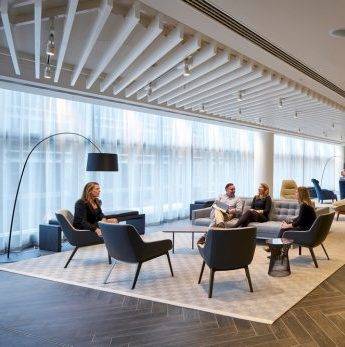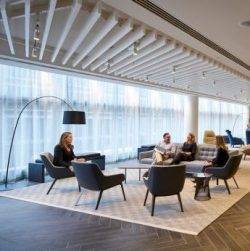August 3, 2018
Digital transformation is making it challenging to find qualified employees
 Traditional job roles are becoming more complex due to digital transformation initiatives a new poll claims, with UK businesses having to wait more than five months, on average, for new joiners to get up to speed in their jobs. In the research by Robert Half of almost 5,000 CFOs in 14 countries, CFOs in the UK report that the key skills for finance professionals are changing. With digital transformation a priority for many organisations, there is now more focus on skills such as data analysis (cited by 43 percent of CFOs), financial analysis (35 percent), and data forecasting (34 percent). Finding the right people with these abilities is made even more challenging by the fact that businesses around the world are struggling to find qualified professionals. Almost all (93 percent) UK businesses find it challenging to attract qualified accounting and finance professionals. Globally, the issue is equally pronounced, with 94 percent of businesses also reporting similar challenges.
Traditional job roles are becoming more complex due to digital transformation initiatives a new poll claims, with UK businesses having to wait more than five months, on average, for new joiners to get up to speed in their jobs. In the research by Robert Half of almost 5,000 CFOs in 14 countries, CFOs in the UK report that the key skills for finance professionals are changing. With digital transformation a priority for many organisations, there is now more focus on skills such as data analysis (cited by 43 percent of CFOs), financial analysis (35 percent), and data forecasting (34 percent). Finding the right people with these abilities is made even more challenging by the fact that businesses around the world are struggling to find qualified professionals. Almost all (93 percent) UK businesses find it challenging to attract qualified accounting and finance professionals. Globally, the issue is equally pronounced, with 94 percent of businesses also reporting similar challenges.










 Nearly half of UK managers (45.1 percent) are ill-prepared for the role, and a quarter (25 percent) of employees say their manager does not have the right skills for effective management, claims new research by Bridge by Instructure. The study, based on interviews of 1,000 managers and employees across the UK on their attitudes towards both management and learning and development, revealed that more than half of those who responded (53.4 percent) think managers need more training to perform as a manager and, almost half (45 percent) think managers need to be given time to operate as a manager rather than having those responsibilities ‘bolted on’ to their existing role.
Nearly half of UK managers (45.1 percent) are ill-prepared for the role, and a quarter (25 percent) of employees say their manager does not have the right skills for effective management, claims new research by Bridge by Instructure. The study, based on interviews of 1,000 managers and employees across the UK on their attitudes towards both management and learning and development, revealed that more than half of those who responded (53.4 percent) think managers need more training to perform as a manager and, almost half (45 percent) think managers need to be given time to operate as a manager rather than having those responsibilities ‘bolted on’ to their existing role. 


 A major research study “
A major research study “


 As employment levels rise, employers are facing stronger competition to attract and retain staff. Now the latest research suggests there is an escalation in the ‘war for talent’, as nine out of 10 new hires admit they would leave a job that fails to meet expectations within a month. According to research commissioned by Robert Half of 9,000 candidates in 11 countries across four continents, nearly half (47 percent) admit they decide whether they would or wouldn’t accept a position straight after the initial meeting. Highlighting that first impressions count, a further one fifth (20 percent) know if they are interested after the first communication (call/email), while 17 percent typically decide within the first five minutes of the interview. Less than one in 10 (9 percent) wait until they have completed subsequent interviews to decide and merely 7 percent decide during contractual negotiations. Even once candidates have accepted a role, 91 percent admit they would consider leaving a job within their first month and 93 percent during their probation period.
As employment levels rise, employers are facing stronger competition to attract and retain staff. Now the latest research suggests there is an escalation in the ‘war for talent’, as nine out of 10 new hires admit they would leave a job that fails to meet expectations within a month. According to research commissioned by Robert Half of 9,000 candidates in 11 countries across four continents, nearly half (47 percent) admit they decide whether they would or wouldn’t accept a position straight after the initial meeting. Highlighting that first impressions count, a further one fifth (20 percent) know if they are interested after the first communication (call/email), while 17 percent typically decide within the first five minutes of the interview. Less than one in 10 (9 percent) wait until they have completed subsequent interviews to decide and merely 7 percent decide during contractual negotiations. Even once candidates have accepted a role, 91 percent admit they would consider leaving a job within their first month and 93 percent during their probation period.











July 23, 2018
New report on the future of work argues we are at an inflection point on the journey
by Mark Eltringham • Comment, Technology, Workplace design
(more…)